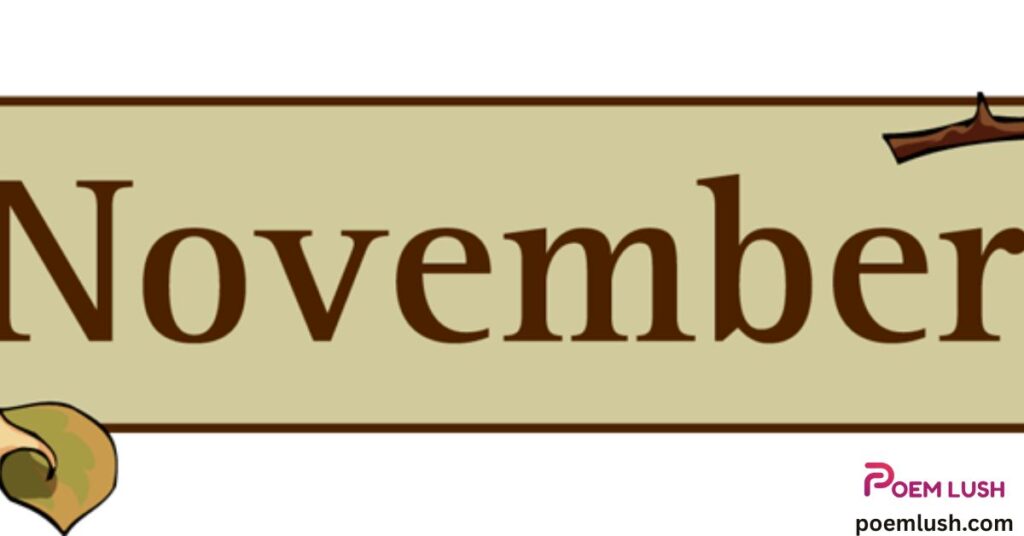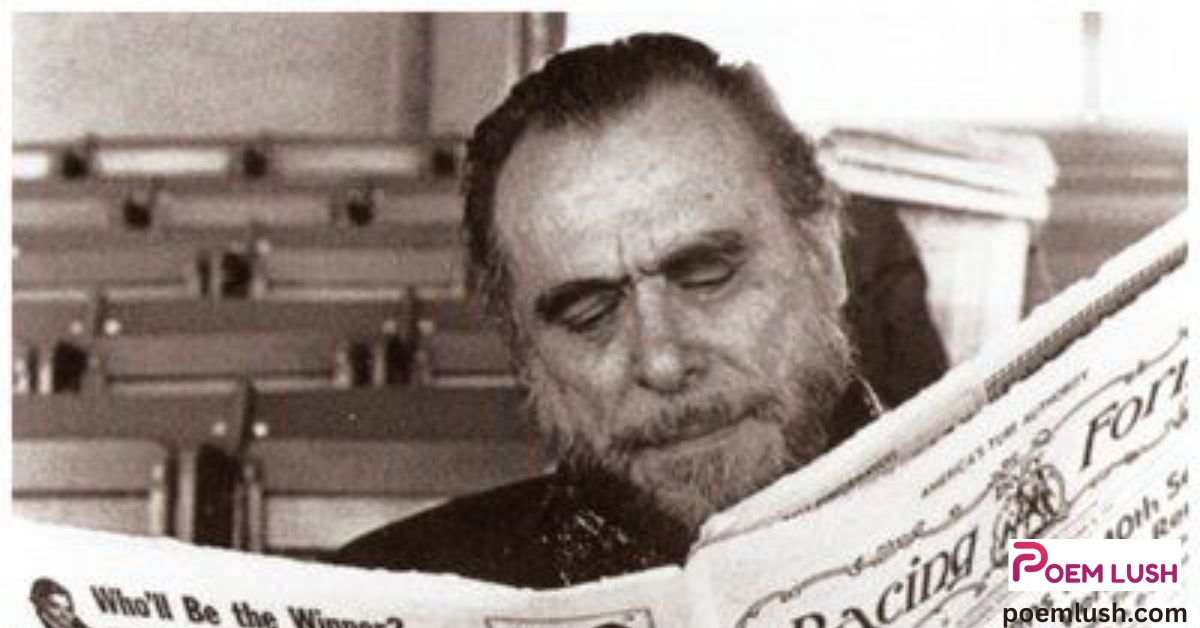Bukowski Poetry is Plagiarism Welcome to Week 1 of Poetry is Plagiarism, a writing challenge dedicated to channeling the voices of iconic poets. This week’s theme was none other than the gruff, beer-soaked, truth-spewing Charles Bukowski. Participants were tasked with embodying Bukowski’s unapologetic rawness and stark realism. And they delivered.
Taking first place in our “Best Emulated” category was Corey’s visceral and unforgettable poem, “at the fishhouses”. Below, you’ll find this and the rest of the standout pieces from Week 1, arranged by how closely they echoed Bukowski’s style. These poems are rough, honest, ugly, and sometimes beautiful just like Bukowski would’ve liked it.
at the fishhouses

by C.W. Bryan
the fishmarket wakes up choking
on the stench of fresh death
guts spill out like red rivers
from stonefish, catfish,
and whatever godless thing
got dragged from the ocean
only to be sliced open
on a plastic cutting board
under buzzing fluorescent lights.
you forget how loud knives can be
pencil-thin scalpels
sharpened on stone and rage,
unzipping bellies like
final notice envelopes.
blood on hands, on boots,
on aprons that haven’t seen soap
since last summer.
some lunatic wandered in
4:30 a.m.,
flip-flops and fury,
screaming about cruelty
with a pistol meant for war.
the headlines called him
an activist.
last month, he poured pig’s blood
on himself and stood
outside a hair salon yelling,
“kill me for shampoo!”
he thought he was making a point.
thought he was the pig.
maybe he was.
he managed two gunshots.
missed both.
but every fish gutter in the place
carried a knife
and a reason.
eight of them took him down.
thirty-seven stabs in the soft places.
no speeches.
no mercy.
opened him like a weekend catch.
if you’re gonna make a mess,
at least know how to clean it up. Bukowski Poetry is Plagiarism
evening
by Sam Kilkenny
a november night wrapped in silence
we cracked the windows
to let autumn breathe through the curtains.
frogs and crickets sang their
desperate little songs.
and just as the world began to hum,
we closed the windows,
turned on the tv,
and drowned them all out.
crematorium
summer.
first year of college.
found work at a funeral home
moving boxes with bodies inside.
they paid well,
and the silence was something
i could live with.
nobody talks to the guy
carrying the casket.
after the mourners left,
i’d wheel the dead
to the basement
drop them into the oven
like overcooked roasts.
one man,
old landlord from Berne Street,
was next in line.
three grand a month for a shoebox.
his wife said he was beloved.
tenants probably dreamed
of tossing him in that furnace themselves.
i cracked my knuckles
and waited for the end
of her sob story.
people filed out like zombies
and i slipped the gloves on,
ready to lift what was left of the man. Bukowski Poetry is Plagiarism
that’s when she appeared
a woman in black,
short skirt, veil,
grief smeared across her cheeks.
she reached into the coffin
like she was saying goodbye.
instead, she wrapped her fingers
around his wrist
and pulled out a gold watch
still warm from death.
tucked it in her purse
like a keepsake.
she didn’t even see me.
just ran out, tears and heels
clicking down the hall.
the watch didn’t matter.
his body burned all the same.
Tuesday
by Sam Kilkenny (rewritten)
Today, I am perfect.
Not because I did something great,
but because I stayed still.
I didn’t chase the clock or argue with the wind.
I laid in bed, let the ceiling fan hum its lullaby,
and allowed the world to pass me by
without guilt, without shame.
Sometimes, stillness is the most honest thing you can do.
Epistemology
by C.W. Bryan (rewritten)
We can’t know it.
That great it mystery wrapped in silence.
We know we can’t know it,
still, we poke at it with questions,
poke at it with words that dissolve like sugar in water.
We ask,
we answer,
but we never really know.
And maybe the asking is more sacred
than the answer ever could be.
Untitled (Cherokee Man)
inspired by the original verse
Like the man on Cherokee Street
his ribs caged like a bird’s,
his voice burned through with smoke and time,
hollering not for help but just because.
One shoe on, the other lost
somewhere down the cracked pavement,
laceless, abandoned
like a thought that never finished itself. Bukowski Poetry is Plagiarism
This is Important
by Sam Kilkenny (rewritten)
There’s a hole in my pocket,
and it eats everything
my time, my money,
my sense of presence.
It vibrates with urgency,
telling me this yes, this
is important.
More important than the birds nesting in Piedmont Park,
than the soft smile of the cashier scanning groceries,
than your tears when you talk about
Flannery O’Connor after two glasses of red wine.
The hole says,
“This is it, this is what matters.”
And I believe it
even when the real world is
begging for my attention,
begging to be seen,
to be lived.
This Is How It Goes
by Sam Kilkenny (rewritten)
You keep your head down.
You do what’s right.
You collect friends, a stable job,
Netflix logins and gym memberships
you barely use.
You eat your greens sometimes
you make money sometimes.
And then one day,
you pause mid-bite, mid-scroll, mid-life,
and whisper,
“Wait… this is it?”
Where’s the adventure?
Where’s the sword, the villain,
the great romantic swell of music in the background?
They say: “That’s fairy tale stuff, sweetheart.”
And you say: “But those tales taught me to be good.”
They nod. “Exactly.”
You laugh, but it’s hollow.
Because this is how it goes.
Neighborhood
by Sam Kilkenny (rewritten & expanded)
There’s a bar around the corner from my house.
No signs. No neon.
It’s hidden like a secret only neighbors know.
Just a garage
a man’s garage
converted not with money but with love.
A rope splits the space.
On one side: tables handmade,
paint chipped,
but still sturdy enough to carry the weight of a thousand silent conversations.
On the other: kegs, tools, bikes reborn into bizarre sculptures.
The man welds while we drink.
His torch hisses and pops,
sending sparks into the air like fireflies.
It gets hot, too hot to talk
so we just watch, wide-eyed.
Sometimes he lifts his mask,
grinning beneath soot-smudged cheeks,
and asks, “Anyone need a refill?”
Hands rise like prayers.
He pours without pride,
$2 for a pint,
or free, if he thinks the batch is bad.
We never think it is.
He makes bar stools out of spokes,
mirrors out of chains.
Someone always asks,
“What is it going to be?”
And he always says,
“I don’t know yet.”
And we nod
because that’s enough.
But then a reporter came,
slipped inside with a pen and a headline,
and now the garage is quiet,
the sparks are gone.
The secret was never meant for clicks.
Some beautiful things only survive
if you keep them sacred
and silent.
Cats
by C.W. Bryan (rewritten & expanded)
About three blocks north,
maybe one to the west,
there’s a yard untouched by time.
Weeds rise like monuments,
flowers bloom without permission.
No car in the driveway,
no lights in the windows.
But there is a cat
black and white,
lounging in the grass
like royalty in exile.
On lucky days,
he flips over as I pass,
bares his belly,
and lets out a scream.
Not for help.
Not for attention.
Just because he can.
Sometimes,
I stop to scratch his soft belly,
and for a moment,
we are both free.
Other days,
the sun is too cruel,
and I walk past,
and he screams louder
dragging his body like a protest,
scratching his own belly
just to feel something.
There is a kind of joy
only the truly free can know.
And nothing
not love, not comfort
feels better than that.
November

by C.W. Bryan (rewritten & expanded)
It’s November now.
The trees are bare-boned,
skeletal in their honesty.
The wind bites,
but softly.
The streets are quiet,
like the world is holding its breath.
The leaves have already fallen
no more colors to cling to,
no more distractions.
Just the ache of what’s gone
and the question:
What’s left to do
when even the seasons
have stopped trying?
FAQs
Did Charles Bukowski ever say “Poetry is plagiarism”?
While there is no direct quote attributed to Bukowski where he explicitly says “Poetry is plagiarism,” his writing often echoed themes of borrowing, imitation, and rebellion against traditional literary norms.
What does “Poetry is plagiarism” mean in the context of Bukowski’s work?
In the context of Bukowski, this phrase could imply that poetry is an art of reusing life’s experiences, emotions, and existing ideas in new ways..
Did Bukowski plagiarize other poets or writers?
There’s no strong evidence that Bukowski directly plagiarized others. However, like many artists, he was influenced by the works of writers like John Fante and the Beat Generation..
Why is Bukowski considered a controversial figure in poetry?
Bukowski is controversial due to his unapologetic writing style, frequent use of vulgar language, and themes surrounding alcoholism, sex, and loneliness.
How did Bukowski influence modern poetry despite these allegations?
Despite the edgy persona and the idea that “poetry is plagiarism,” Bukowski inspired a generation of poets to write more honestly and freely.
Conclusion
Charles Bukowski, with his gritty realism and raw honesty, carved a space in literature where the everyday became poetic. His belief that “poetry is plagiarism” reflects a deeper truth about artistic influence how all poets, consciously or not, borrow from life, language, and the work of others. Bukowski didn’t shy away from this idea; instead, he embraced it, showing that true creativity often lies in how we transform shared experiences into something uniquely our own.


